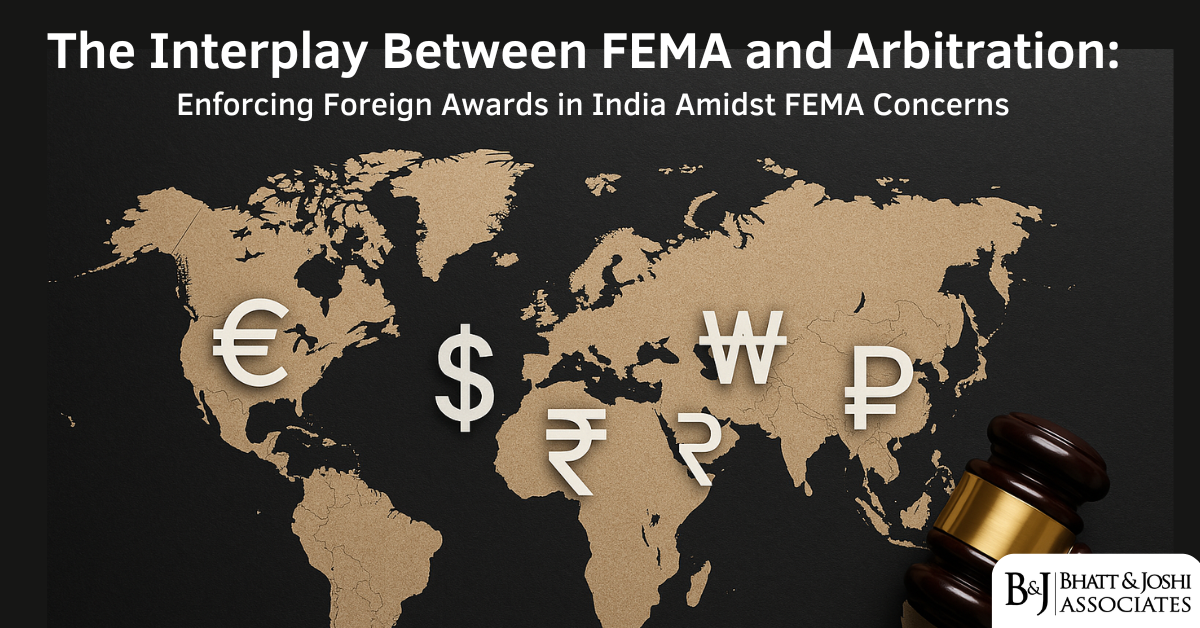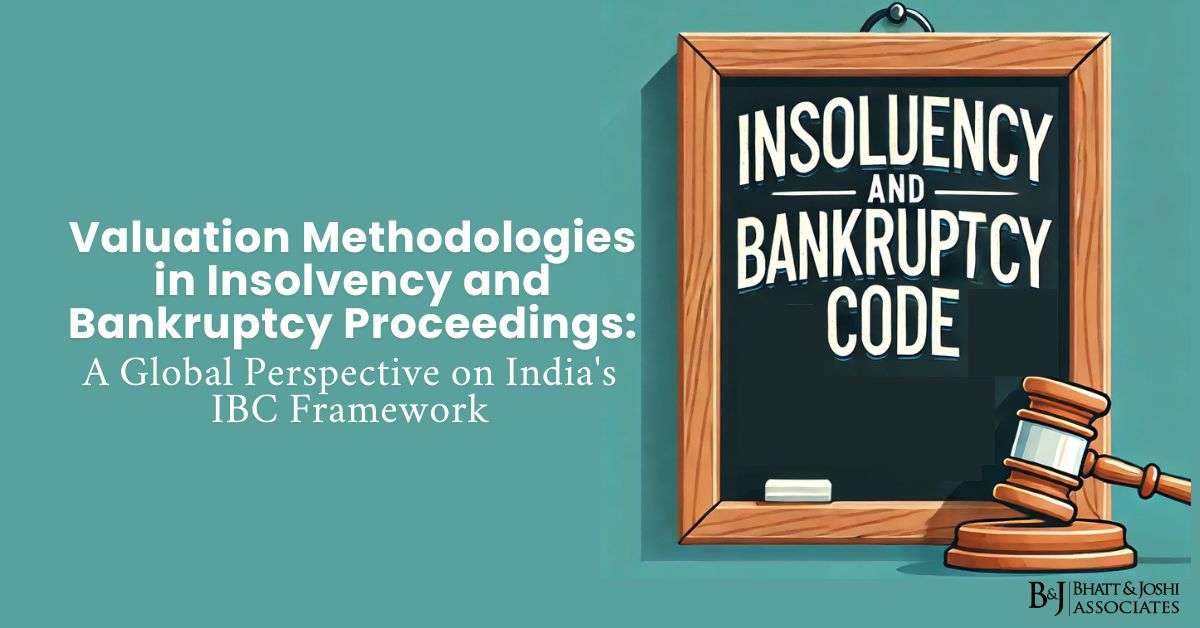Introduction
The Foreign Exchange Management Act, 1999 (FEMA), is the principal legislation governing foreign exchange transactions in India. While FEMA aims to facilitate external trade and payments and promote an orderly foreign exchange market, its provisions can sometimes intersect with the enforcement of foreign arbitral awards in India. This article explores this complex interplay, highlighting the approach taken by Indian courts when faced with objections to enforcement based on alleged FEMA violations.
FEMA and the Enforcement of Foreign Awards in India
The enforcement of foreign arbitral awards in India is primarily governed by Section 48 of the Arbitration and Conciliation Act, 1996, which is based on the New York Convention. One of the grounds for refusing enforcement under this section is if the court finds that the enforcement of the award would be contrary to the public policy of India.
Historically, parties have attempted to resist the enforcement of foreign arbitral awards by arguing that their enforcement would violate FEMA, thereby being contrary to India’s public policy, as exchange control was considered vital for the Indian economy.
Judicial Trends: A Pro-Arbitration Stance
Over time, Indian courts have generally adopted a pro-arbitration stance in matters of enforcing contractual obligations, even when potential FEMA contraventions are raised. The prevailing view is that a mere violation of FEMA is not sufficient grounds to refuse the enforcement of a foreign arbitral award.
Several landmark judgments illustrate this trend:
- Renusagar Power Co Ltd v General Electric Co: While initially noting that enforcing an award violating FERA 1973 (the predecessor to FEMA) could be against public policy, the Supreme Court ultimately permitted enforcement as the underlying contract had government approval. This case, however, became the basis for many subsequent “exchange control objections”.
- Noy Vallesina Engineering Spa v Jindal Drugs Ltd: The Bombay High Court held that an award cannot be refused enforcement simply because RBI permission wasn’t obtained at the time of the contract’s execution. The court suggested that RBI permission could be sought before actual payment.
- Bhatia Coke and Coal Sales (P) Ltd v Vitol SA: The Bombay High Court rejected the argument that an award was against public policy due to a potential FEMA violation. The court noted that the alleged violation was due to the actions of the party resisting enforcement, not the arbitral tribunal’s order.
- POL India Projects Ltd v Aurelia Reederei Eugen Friederich Gmbh: The court held that a simple violation of FEMA would not attract the bar of public policy and that unlike FERA 1973, FEMA does not declare transactions in contravention as void.
- Cruz City 1 Mauritius Holdings v Unitech Ltd: The Delhi High Court made key observations: there is a policy in favour of enforcing foreign arbitral awards, and a mere contravention of a law is not synonymous with contravention of the fundamental policy of Indian law. The court noted that FEMA’s policy is to manage foreign exchange, unlike FERA’s policy to preserve it, and FEMA does not automatically render transactions void for procedural non-compliance. Thus, a simple FEMA violation is not against fundamental policy. However, the court clarified that remittance of money under the enforced award would still require RBI approval.
- Vijay Karia v Prysmian Cavi E Sistemi Srl: The Supreme Court upheld the enforcement of a foreign arbitral award, clarifying several important points:
- FEMA concerns the management of foreign exchange, unlike FERA which was about policing it.
- FEMA lacks a provision equivalent to Section 47 of FERA, which rendered violating transactions void.
- A rectifiable breach under FEMA cannot be considered a violation of the fundamental policy of Indian law. Post-facto RBI permission may be obtained.
- It is the RBI’s prerogative to address FEMA breaches, not a ground for automatic refusal of enforcement.
- Recent judgments enforcing SIAC arbitral awards have reiterated that a challenge to enforceability based on the contract violating FEMA cannot be sustained, especially when ex-post facto permission can potentially be obtained.
The Question of RBI Approval Post-Enforcement
While courts have generally held that FEMA violations are not a bar to the enforcement of foreign arbitral awards, the question of whether prior RBI approval is required for initiating enforcement proceedings or for the subsequent remittance of funds has been debated.
- The Delhi High Court in the Docomo case had suggested that the RBI would be bound by the arbitral tribunal’s determination.
- However, the Supreme Court in Vijay Karia clarified that it remains within the RBI’s powers to direct compliance with or condone a breach of FEMA, and post-facto approval can be sought. An objection to resist enforcement solely on this ground would not succeed.
Currently, the matter of whether RBI approval is required before initiating further proceedings for enforcement is pending before the Supreme Court in the case of GPE (India) Ltd v. Twarit Consultancy Services Private Limited.
Conclusion
The prevailing judicial trend in India demonstrates a strong pro-arbitration bias when it comes to enforcing foreign arbitral awards, even in the face of alleged FEMA violations. Courts have consistently held that a mere contravention of FEMA does not equate to a violation of India’s fundamental public policy. While the actual remittance of funds pursuant to an enforced award may still be subject to RBI scrutiny and approval, the Indian judiciary is generally inclined to uphold contractual obligations recognised in foreign arbitral awards, promoting a more arbitration-friendly environment in India. This approach underscores the importance of honouring freely entered contractual commitments in the context of international arbitration.
Citations:
-
Renusagar Power Co Ltd v General Electric Co – Read Full Judgment
-
Noy Vallesina Engineering Spa v Jindal Drugs Ltd, (2003) 1 GLR 186 – Read Full Judgment
-
Bhatia Coke and Coal Sales (P) Ltd v Vitol SA, 2020 SCC OnLine Bom 732 – Read Full Judgment
-
POL India Projects Ltd v Aurelia Reederei Eugen Friederich Gmbh – Read Full Judgment
-
Cruz City 1 Mauritius Holdings v Unitech Ltd, (2017) 239 DLT 649 – Read Full Judgment
-
Vijay Karia v Prysmian Cavi E Sistemi Srl, (2020) 11 SCC 1 – Read Full Judgment
-
GPE (India) Ltd v Twarit Consultancy Services Private Limited, SLP (C) No. 6856/2023 – Read Full Judgment
Article by : Aditya Bhatt
Association: Bhatt and Joshi












